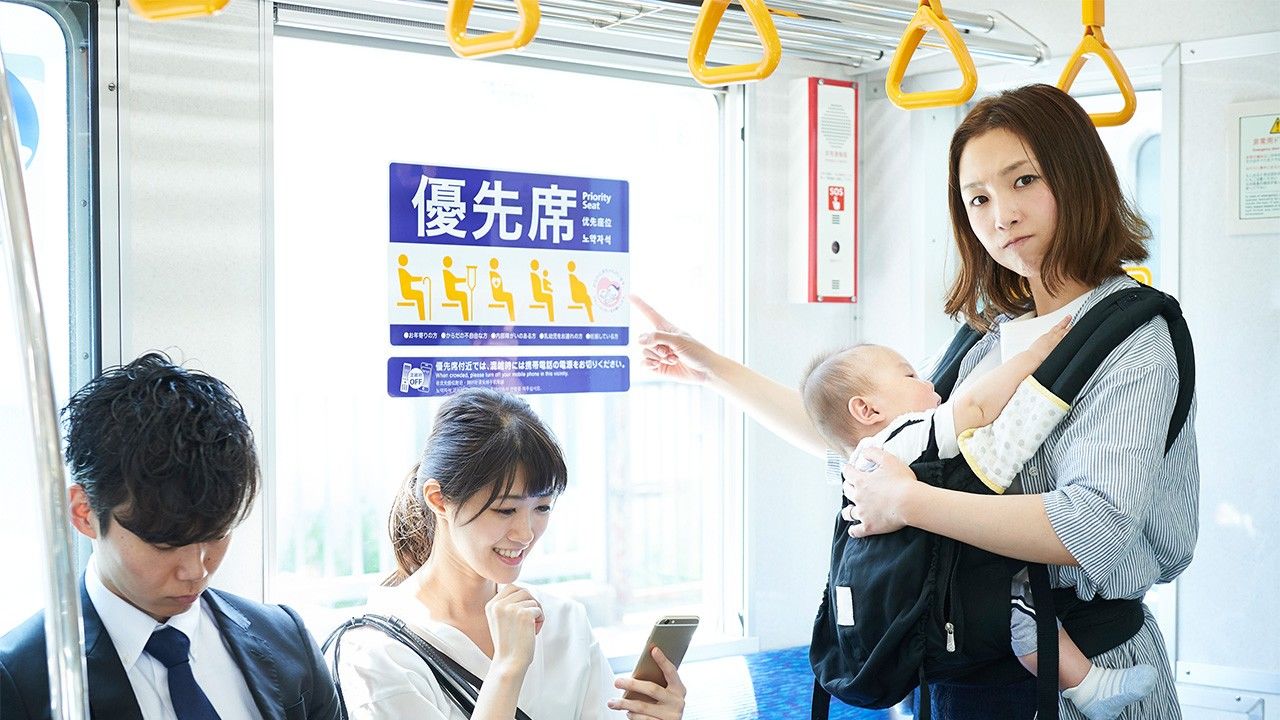
Priority Seats on Japanese Trains: Survey Finds Many Passengers Will “Move If Needed”
Society Lifestyle- English
- 日本語
- 简体字
- 繁體字
- Français
- Español
- العربية
- Русский
A recent online survey in Japan conducted by Wakamoto Pharmaceutical revealed that, at 66.9%, two in three of the 1,949 respondents sometimes sit in a priority seat on a train.
The most common reason for sitting in a priority seat, given by 618 respondents, was “I planned to give up the seat if someone needed it.” A further 501 people said that “I was in the way if I stood up and the seat was available.” It seemed that many people held the perception that they were not planning to sit in the priority seat all the time, and only used it because it was available at that time.
Among those who did not sit in the priority seats, 65% believed “they need to be left available for those who need them.”
Regarding the maternity mark indicating that someone is pregnant, there was extremely high awareness, with 85% of all respondents saying they knew it.
Nearly 80% said “I would give up my seat (even if I was sitting in a regular seat)” if they saw someone with a maternity mark badge and when combined with those who said “I would give up my seat if I was sitting in a priority seat,” this rose to 94%.
The survey revealed that 54.9% had given up their seat for someone who was pregnant. Along with “I will always give up my seat for someone who needs it,” other reasons for people giving up their seat were based on easily understandable visual cues, including “they had a maternity mark badge,” “they had a large tummy,” and “it looked like they were struggling standing.”
(Translated from Japanese. Banner photo © Pixta.)





